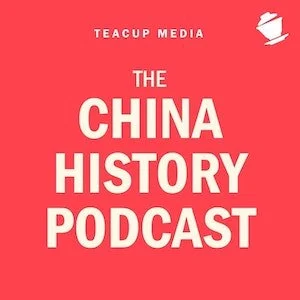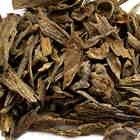Ep. 322 | The History of Taiwan (Part 13)
In this Part 13 installment, in what I can tell you now, will be a 15-Part series, we look at some of the main events from 1977-1987. This was the final decade in the life of Chiang Ching-Kuo. He ended martial law and set Taiwan on the course that we all recognize today. In this episode, we'll look at the Zhongli Incident, the rise of Xu Xinliang 许信良 and a more emboldened political opposition, the normalization of relations between the US and PRC, and the subsequent Taiwan Relations Act.
Other things mentioned in Part 13 include the founding of the Hsinchu Science Park and the birth of TSMC, the semiconductor company so often mentioned in the news. We'll finish off with the killing of dissident writer Henry Liu (江南) in Daly City, California. The final two episodes will focus on more recent events.
Listen On Your Favorite Podcast Player
Terms in Episode
| Pinyin/Term | Chinese | English/Meaning |
|---|---|---|
| Xīnjiāng | 新疆 | China's largest province by area. Located in the northwest of he country |
| Jiǎng Jīngguó | 蒋经国 | 1910-1988, Mostly written as Chiang Ching-kuo, he was the son of Chiang Kai-shek and served as president of the ROC from 1978-1988 and premier from 1972-1978 |
| Yán Jiāgàn | 严家淦 | 1905-1993, better known in the west as C.K. Yen. He succeeded Chiang Kai-shek as president of the ROC, serving from 1975-1978 |
| Dǎngwài | 党外 | a loosely knit political opposition movement in Taiwan in the mid-1970s and early 1980s. |
| Xīnzhú | 新竹 | City on the northwest coast of Taiwan |
| Zhōnglì Incident | 中坜事件 | A pro-democracy movement that erupted in 1977 against perceived KMT corruption at the polling places |
| Táoyuán County | 桃园县 | Located in northwestern Taiwan, neighboring New Taipei City to the north-east, Yilan County to the south-east, and Hsinchu County to the south-west. Taoyuan developed from a satellite city of the Taipei metropolitan area to become the fourth-largest metropolitan area, and fifth-largest populated city in Taiwan |
| Xǔ Xìnliáng | 许信良 | Born in 1941, Taiwanese politician, formerly Chairman of the DPP. He was a supporter of the Pan-Blue Coalition from 2000 to 2008 but then supported the DPP in the 2008 presidential election. |
| Péng Míngmǐn | 彭明敏 | 1923-2022, noted democracy activist, advocate of Taiwan Independence. |
| Gāoxióng Incident | Also known as the Formosa Incident, the Kaohsiung Incident was a crackdown on pro-democracydemonstrations that occurred in Kaohsiung, Taiwan, on 10 December 1979 during Taiwan's martial law period | |
| Shī Míngdé | 施明德 | Born in 1941, Shi is commonly known as Nori Shih. He's a statesman and human rights defender in Taiwan and was once a political prisoner for 25-and-a-half years. |
| Tàiyuán Prison | 泰源监狱 | One of the prisons in Taiwan where criminals and political dissidents were sent |
| Kāng Níngxiáng | 康宁祥 | Born 1938, Kang is a Taiwanese politician, once active in the Dangwai movement, and began his political career as a supporter of Huang Xinjie. Kang is a founding member of the Democratic Progressive Party |
| Huáng Xìnjié | 黄信价 | 1928-1999, was a Taiwanese politician, Taipei city council member, National Assembly representative, Legislative Yuan legislator, publisher of Formosa Magazine, senior Dangwai Leader, third chairperson of the DPP, and senior adviser to the president of the Republic of China. |
| Měilìdǎo Magazine | 美丽岛杂志 | Formosa Magazine |
| Léi Zhèn | 雷震 | 1897-1979, Chinese politician and dissident who pioneered the cause for democracy in Taiwan |
| Chén Shǔibiǎn | 陈水扁 | Born in 1950, Chen is a retired Taiwanese politician and lawyer who served as the president of the Republic of China from 2000 to 2008. He was the first president from the Democratic Progressive Party followinf 55 years of continuous rule on Taiwan by the Kuomintang (KMT) |
| Xú Xiánxiū | 徐贤修 | 1912-2001, also known as Shu Shien-Siu, was a highly respected Chinese/Taiwanese mathematician, engineer and educator |
| Zhāng Zhōngmóu | Born in Ningbo in 1931 and better known as Morris Chang, he is a Taiwanese-American businessman who built his career in the United States and subsequently in Taiwan. He is the founder, as well as former chairman and CEO, of Taiwan Semiconductor Manufacturing Company (TSMC). He is considered as the founding father of Taiwan's semiconductor industry | |
| Liú Yiliáng | 刘宜良 | 1932-1984, often known by his pen name Chiang Nan (江南; Jiāng Nán). Liu was a Taiwanese-American writer and journalist. He was a vocal critic of the KMT and most famous for writing an unauthorized biography of Chiang Ching-kuo. He later became a naturalized citizen of the United States, and resided in Daly City, California, where he was assassinated by Bamboo Union members, orchestrated by gangster Chen Qili, who had been reportedly trained by the Kuomintang's military intelligence division. |
| Chén Qǐlǐ | 陈启礼 | See above |
| Zhú Lián | 竹联 | The Bamboo Union criminal organization |
| Lǐ Dēnghuī | 李登辉 | 1923-2020, was a Taiwanese statesman and agriculturist who served as President of the ROC and chairman of the KMT from 1988 to 2000. He was the first president to be born in Taiwan, the last to be indirectly elected and the first to be directly elected. During his presidency, Lee oversaw the end of martial law and the full democratization of the ROC, advocated the Taiwanese localization movement, and led an ambitious foreign policy to gain allies around the world. Nicknamed "Mr. Democracy", Lee was credited as the president who completed Taiwan's transition to the democratic era. |
| bĕnshěngrén | 本省人 | In Taiwan these are the people born and raised in Taiwan and who lived there prior to the Chinese Civil War |
| Hoa | 华 | Chinese Vietnamese |
| Lièyǔ | 烈屿乡 | Site of the Lièyǔ Massacre of 1987 |
| Cài Yīngwén | 蔡英文 | Tsai Ing-Wen, Taiwan's president until 2024. She will be discussed in Part 15 |
| Xiè Guómǐn | 谢国民 | 1934-2019, also known as Roger Hsieh, he was a Taiwanese politician |
| Dèng Lìjūn | 邓丽君 | 1953-1995, commonly known as Teresa Teng, was a Taiwanese singer, actress, musician and philanthropist. Referred to by some as the "Eternal Queen of Asian Pop," she is considered one of the greatest and most influential figures in Asian pop music. She is recognized as a cultural icon for her contributions to Chinese pop. |
| Bāozhōng Township | 褒忠乡 | Located in Yúnlín County 云林县, about halfway between Táizhōng 台中 and Táinán 台南. Birthplace of Teresa Teng |
| Dèng Xiǎopíng | 邓小平 | 1904-1997, revolutionary leader, military commander, statesman, reformer who served as parampount leader in China from December 1978-November 1989. He is revered by many as "The Architect of Modern China" |
| Fèng Fēifēi | 凤飞飞 | 1953-2012, was a Taiwanese singer, host and actress. As one of the biggest pop singers in Taiwan, she was known for her melodic love songs, unique personal stage style and broad vocal range. Over a 40 year career, Feng Feifei released more than 80 albums, sang over 100 movie theme songs and starred in several films and television variety shows |
| Ōuyáng Fēifēi | 欧阳菲菲 | Born in 1949, another mega pop-star from Taiwan during the 1980's who was equally enjoyed in Japan |
| Cài Qín | 蔡琴 | Born in 1957, Cai is a pop and folk singer from Taiwan. Best known as Tsai Chin, she sings in both Mandarin and Taiwanese and is known for her rich, magnetic vocals. Because of this, she is also known as the "Patti Page of Taiwan." Not to be confused with the other famous Tsai Chin: the Chinese actress, singer, director, teacher, and author best known in America for her role as Auntie Lindo in the film The Joy Luck Club. |

















his all took place in the final moments of the Warlord Era, right after the Central Plains War. This act perpetrated by warlord Sun Dianying 孙殿英 epitomized the venality of these men.